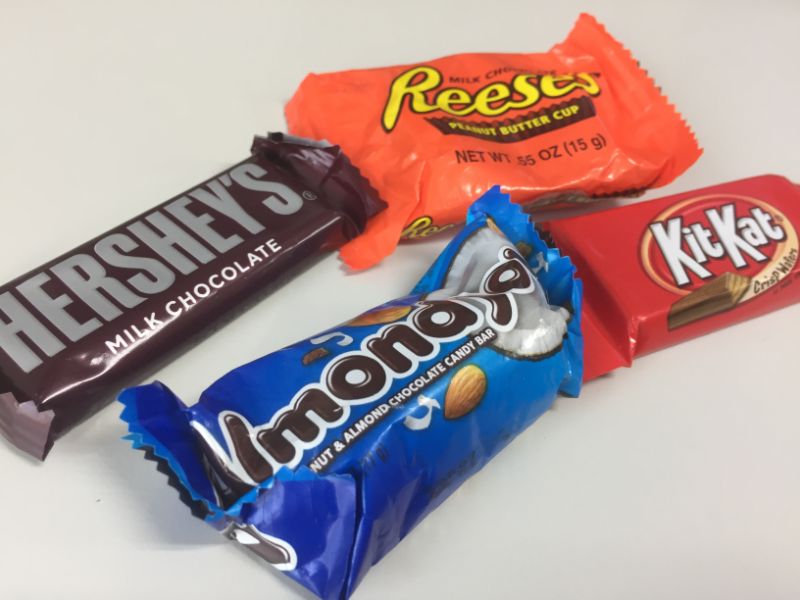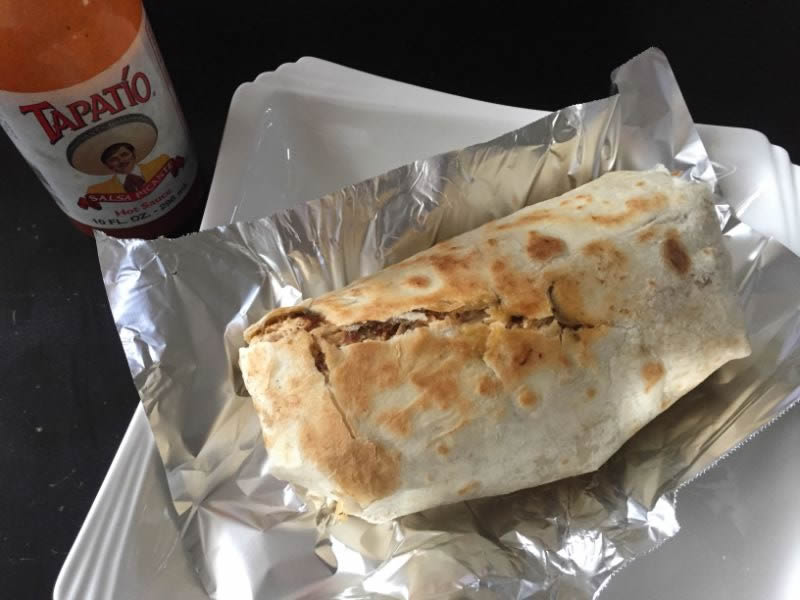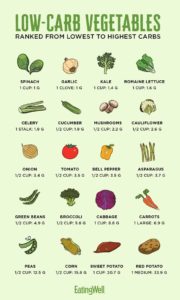
First of all, apologies for this disgusting picture of the kid eating spaghetti like a barnyard animal. I thought it was funny. But on second glance, it’s also kinda gross.
So … comments! Most comment sections online are a total dumpster fire.
But on this diabetes blog, the comments that people leave are awesome. They tell me if what I’m writing is at all helpful or if it’s just hot garbage. And sometimes people ask really great questions.
A swell gal named Susan just left this comment on a thing I wrote about KFC:
I just [noticed] you are testing 1 hour after a meal , I was told 2 hours is the best time to test.
Oh crap. Is someone finally calling me out on my bullshit?
Not at all! Susan is just raising a great point. On basically all of my blood glucose tests, I check the blood sugar 1 hour after eating.
But wait! The internet says to wait 2 hours. So what gives?
Well, the internet says a lot of things. And if you look closely, even the most “reputable” sources of diabetic and medical info do a piss poor job of explaining why you should wait 2 hours. More on that later.
First, I want to explain why I do what I do.
My reasons for checking glucose only 1 hour after eating
Reason #1: I’m a pig and I can’t go 2 hours without eating
Ehh that might be a slight exaggeration … but really, the main reason I wait 1 hour is because a lot of my tests are of small things that aren’t really a “meal.”
I may be testing something as small as a piece of Halloween candy. Or maybe a shitty granola bar. Or a single tamale.

And the best way to get what I would consider to be “accurate” glucose results from these tests is to do them when I’m fasting. As in empty stomach. As in I’m probably already hungry before doing the test.
And whenever I do a glucose test for this blog, I don’t eat anything until after checking the glucose results, even if I’m testing something really small.
So waiting only 1 hour before I can eat again is a practical matter of me not wanting to starve to death. Waiting an extra hour beyond that would be torture.
Reason #2: I want to be consistent in my methods
I can’t very well say that eating a McDonald’s Big Mac is safer than eating a Burger King Whopper if I give the Big Mac an extra hour before checking the glucose results (which, I’m sure, would still be horrifying).
That extra hour for the Big Mac would be a really unfair “advantage” and would nullify any comparison I might try to make against the Whopper.
In order to compare various foods against each other, even in broadly relative terms, the wait time needs to be more or less the same all the time.
It’s called science!
Reason #3: Most of the time, my glucose is already coming back down well before the 2 hour mark
It’s true that, quite often, I check my blood sugar after 1 hour and that’s it. No further tests.
But sometimes I decide to do additional tests after an additional 15, 20, or 30 minutes. And when I do this, my glucose is usually beginning to decrease already.
It happened when I ate this huge burrito. And again when I ate a gluten-free chocolate tart. And that time when I made that awesome homemade Egg McMuffin. And when I ate an apple.

But that’s not always the case. Sometimes, my blood sugar continues to climb after the 1 hour mark, like when I went crazy and ate a pile of potato chips.
Also, let’s be clear about one very important point: The goal of my tests is to see how HIGH my glucose is rising as a result of eating this or that.
Since there is no way to know when I reach that high point, I just go with 1 hour. For me, that seems like it’s usually enough time to figure out approximately how bad (or not bad!) something is.
So this is what goes on with MY body, which is to say that you might get entirely different results. If you’re a Type 2 like me, maybe your insulin-resistant blood is more of an asshole than mine.
The only way to really find out is to do your own tests!
As for the internet’s claims that you should wait 2 hours after eating before you check the glucose, I did some googling. See what they say below and draw your own conclusions.
The Mayo Clinic: When to test your blood sugar
Your doctor will let you know how often to check your blood sugar levels. The frequency of testing usually depends on the type of diabetes you have and your treatment plan.
Source: Mayo Clinic | Blood sugar testing: Why, when and how
Oh really, Mayo Clinic? My doctor will let me know?
Wow, that was totally not worth the click.
Mayo goes on to say why a Type 1 diabetic might need to check glucose like 10 times a day, and why a Type 2 might not need to check all that often.
What they DON’T say is how long to wait after eating before you whip out the glucose meter.

Kaiser Permanente: How your meals affect your blood sugar
If you want to know how your meals affect your blood sugar, testing about 2 hours after eating can be helpful.
Source: Kaiser Permanente | Common questions about blood sugar
OK, now we’re getting somewhere. This is moving in the direction of what we want to know. They say 2 hours, but they don’t say why! They just say it can be “helpful.”
Once again, this is pretty useless. But hold up, Kaiser goes on …
If you test soon after a meal, your blood sugar reading will probably be high. Even in people without diabetes, blood sugar readings after a meal can be as high as 180. If you want to check your blood sugar to see how a meal affected you, check about 1 to 2 hours after eating.
Uhh, alrighty then. 1 to 2 hours. Earlier on the same page, they said 2 hours.
So the folks at Kaiser can’t seem to make up their minds, but at least they give a ballpark of how long to wait if you’re looking to see how food is affecting your glucose.
Btw, in case you don’t know, Kaiser Permanente is one of the major healthcare systems in California and probably elsewhere in the U.S. They have all the money in the world, a billion doctors at their disposal, and this is the best they can come up with?

Diabetes.co.uk: Post-prandial glucose testing
Post-prandial is a fancy term for “after meal” testing. They could stick to plain English … but you know those crazy Brits!
Post-prandial blood glucose measurements are commonly taken two hours after you have eaten.
Source: Diabetes.co.uk | Pre and Post Meal Testing
Yawn. That’s nice, dear. Why 2 hours? Nevermind. You don’t have an answer, and apparently neither does anyone else.
Your post-prandial blood glucose levels will largely be influenced by the meal you have eaten, the type and dose of medication you take and how sensitive your body is to insulin. Most people with diabetes can expect to see a rise in blood glucose levels for their after meal results.
The NICE guidelines state the following post meal blood glucose level targets:
Type 2 diabetes: under 8.5 mmol/l (153 mg/dL)
Type 1 diabetes: under 9 mmol/l (162 mg/dL)
First of all, LOL.
“Most people with diabetes can expect to see a rise in blood glucose levels for their after meal results.” No shit, Sherlock. Thanks for the update.
But at least this website provides a goal for the 2-hour glucose check, even if they don’t give a solid reason for why 2 hours is better than 1 hour.

And if you’re questioning the credibility of Diabetes.co.uk, which is totally reasonable, it seems like their credibility is mainly based on the corporation that owns the website.
Diabetes.co.uk is part of a larger entity called Diabetes Digital Media Ltd., a company that apparently has a whole Medical Advisory Board that is stocked with people whose names begin with “Dr.”
They also have various medical advisors on staff. They appear to be pretty legit even though it doesn’t look like they’re associated with a big hospital or professional medical organization.
Everyday Health: Testing Too Soon After Eating
This is the kind of website that, on the surface, doesn’t seem to have any credibility in the medical field at all! But they do have a “Wellness Advisory Board” that includes a number of MDs and PhDs.
Anyway, I’m citing an article of theirs that was written by some lady who is not a doctor and peer-reviewed by another who is a doctor. So here’s what they say:
Testing too soon after you’ve had a meal or a snack will give you results that are probably too high. The solution for better diabetes control: Test fasting blood sugar, and test every time before you eat. Wait two hours after eating to get the best reading.
Source: Everyday Health | 7 Blood Sugar Testing Mistakes to Avoid
Here is yet another source that says to wait 2 hours after eating before you check your glucose.
But here’s the best part!
“Wait two hours after eating to get the best reading.”
The BEST reading? When it comes to goddam diabetes and glucose numbers, “best” generally means “lowest.” But I don’t think that’s what they’re saying.
I’m gonna assume that by “best” they mean the result that most accurately reflects what effect a meal has had on your blood sugar.
That is what I have to ASSUME. Because they didn’t say that specifically. Why? Who the f**k knows.

All right, so there you have it! Four different sources, three of which recommend testing glucose 2 hours after you eat, and one (Mayo Clinic) that punts the issue to your doctor.
Not one of them gives a reason why it’s 2 hours instead of 1 hour, or 90 minutes, or 1 hour and 46 minutes. They just seem content to go with 2 hours.
But if you read all of my nonsense at the start of this post, you already know why I personally wait only 1 hour.
To review:
- I’m often testing a single food item that doesn’t add up to a whole meal, and I’m gonna be too hungry to wait 2 whole hours to eat again.
- I’m being consistent for testing purposes.
- My personal results have shown that MY glucose is usually on the way back down within 90 minutes, so waiting 2 hours wouldn’t be showing me an accurate picture of how a certain food is actually affecting me.
If you plan to do your own food tests, which I highly recommend, the best advice I can give would be to try and be consistent in your methods.
Pay attention to when you’re taking your medication(s) and/or insulin. Test before you eat. Don’t eat anything else until you do the “post-prandial” (after meal) glucose test. And definitely take note of shit that belongs on your own personal No Eat list!
You may very well conclude that waiting 2 hours is best for you. And if that’s the case, then that’s what you should stick with.
For me, 2 hours is 2 long.







I’m siding with you on this one. I have a non-diabetic auto-immune disease (Hashimoto’s which affects my thyroid) and the chronic type of hypoglycemia. This means if I don’t eat right I have quick peaks and crashes through the day. I wore a CGM for two weeks and found out that consistently, a starchy meal without enough protein or healthy fat balance raises my bgl in just an hour’s time. Therefore, while two hours later I WILL be lower, I would have missed the true effect that meal has on me including too frequently spilling insulin into my blood. That of course would lead to problems. I wore the CGM for a ZOE program which I’m glad I did because I learned so much about myself. Though my maximum bgl was 148 and from a test meal of straight starch, and I’m not diabetic, I don’t want to end up there if I can prevent it. Therefore, just like you say, the 1 hour testing mark is almost more meaningful at this point.
Amen, sister!
(Readers: Amy is not really my sister. I’m just trying to sound cool while agreeing with what she said)
They say 2 hours because your blood glucose should return back to normal by 2 hours….unless you have diabetes. Testing it at 1 hour is better because that’s around the time the blood sugar will peak so that tells us more about what the food did. The 2 hour mark would only tell us how well your body is handling blood sugar. I also plan to document the effects of various foods on my sugars, and unless I decide to get a continuous glucose monitor, i plan to use the 1 hour mark as well.
P.s. Glad I found this blog. Hope to learn more about what different foods did to your blood sugars.
Thanks for commenting, jon! 1 hour is where it’s at if you’re just trying to find out what a certain food did to your BG.
Several studies that you can find on Google Scholar, and which I am too lazy to pull at the moment, found that glucose peaks at 60-75 minutes. My conclusion is that the intent behind two hour testing is to confirm that blood glucose has come down properly, not to catch the highest point. Because otherwise it doesn’t make any sense. In medicine that sometimes happens when a twit makes up a number to sound smart and no one questions it, so that’s also possible. There are a lot of twits in medicine.
Fine, here’s a study: “The mean peak time after breakfast was 72 ± 23 min, which was reached in less than 90 min in 80% of the patients.”
https://www.sciencedirect.com/science/article/abs/pii/S1262363610000431
Thanks, Mike! My goal with the 1-hour glucose test has always been to find out if eating X or Y is ok or not. But now I can see the rationale behind the 2-hour test. I wish these websites and their so-called “experts” would make even half an effort at explaining the goal of waiting two hours.
Thanks for this post. I am in the beginnings of trying to understand what’s going on with my blood sugar. I’ve been having serious crashes after eating certain foods. This is all very new to me. Until now I’ve never had problems like this. This post and the subsequ6comments have been very helpful in understanding why and when to test.
Thanks for commenting, Tammy! Glad you find this helpful.
I am a bit late to the party on this one but i just went thru this whole when to test conversation with a Diabetic trainer. We had gone over the data from a recent CGM that i had on. My blood sugar clearly would spike (high 200’s) at the 1 hr mark after eating, i did question this. Magicly the response from the trainer was they only look at the 2 hr reading and then went on to say that for a healthy person the blood sugar normally does not go over 140 after eating. Well this conversation left me confused. so i did comment as to what i am trying to manage here, the best number or avoiding the damaging blood sugar spikes (went from 298 down to 70 in 1.5 hrs) response was i have to talk with my Doc. I am on board with the 1 hr testing.
Hi Mike, thanks for commenting! Yeah what you were told about a “healthy” person’s glucose not going over 140 does not compute with the insistence on testing at 2 hours. To me, it all comes down to why you’re testing in the first place. I’m generally going to be testing to see how high a food is causing my glucose to climb.
You are amazing. I love your sense of humor. And this was absolutely helpful! I am a new returning “student” of blood sugar levels. Doc told me I was pre-diabetic in 2013, and I have been measuring just A1C now for last 5 years or so. I just started reading, “Fast Like a Girl,” and love it. I think I may be on the road to bringing that A1C down to a normal level through intermittent fasting. I do cry after meals a lot which I thought was wack. I just got a blood glucose meter and have done 4 or 5 tests with it so far. I assumed my blood sugar might be in an unhealthy range. Thanks for these comments and your blog. Rock on!
Hi Christy, I’m so glad you found this to be helpful. Crying after meals doesn’t sound great, but it sounds like you’re being smart by watching your A1c. Stay well!